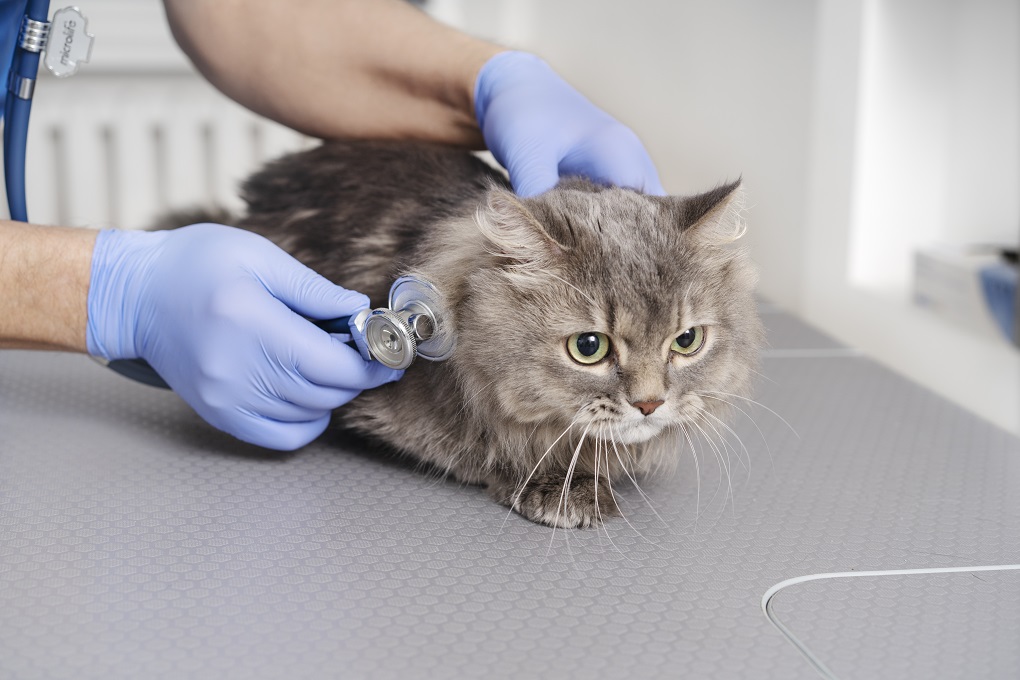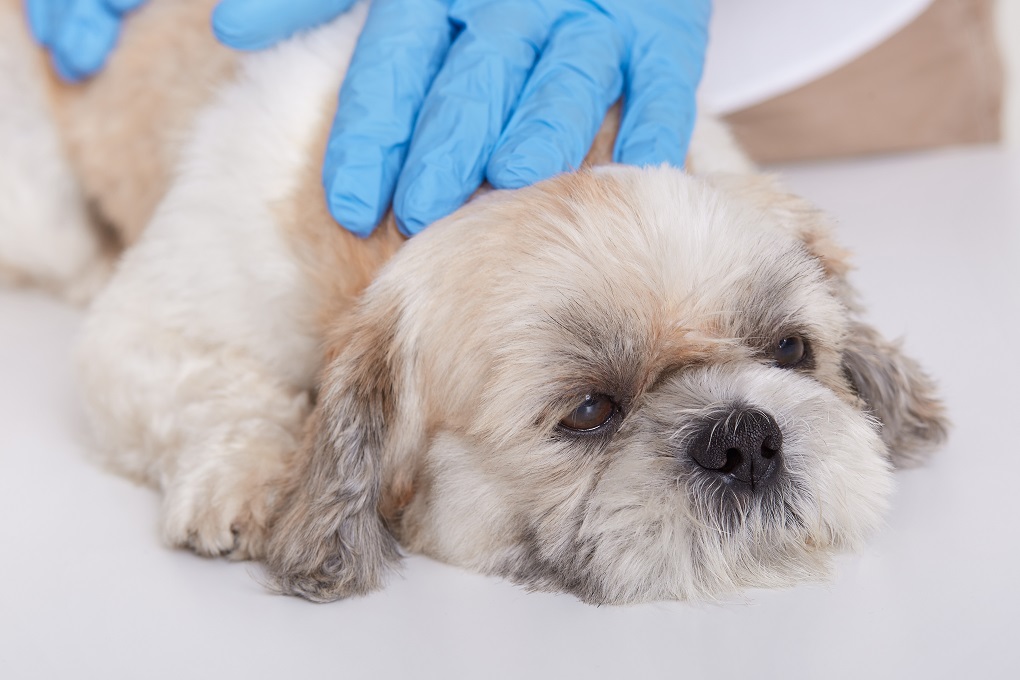Why Do My Cat and Dog Keep Coughing? Potential Causes and Solutions
Does your cat and dog keep coughing? Don’t ignore this concerning symptom! While coughing in pets can sometimes be caused by minor irritation, choking, or tracheal discomfort, it can be a sign of a more serious condition, such as cat asthma or tracheal collapse in dogs. Don't panic - a veterinarian can help diagnose and treat the root cause of your pet's cough.
Keep reading to learn more about the various causes of your dog or cat's cough and how to detect accurately and treat them early.
Causes of cough in dogs and cats
Seasonal changes and wide variations in temperature increases the likelihood of coughing in dogs and cats. It is important to visit a veterinarian if you notice your pet coughing, as the clinical presentation of coughing and vomiting is somewhat similar, and it is often found that pet parents cannot distinguish between them. Simply put, coughing causes substantial movements of the chest and ribs, while vomiting may cause stomach contraction or increased saliva production. Coughing is a normal physiological reflex. When the throat, trachea, or bronchi are irritated, the irritant will be expelled by the cough reflex.Distinguishing the sound of coughing in dogs and cats
To accurately diagnose and treat coughing in dogs and cats, it is important to consult with a veterinarian. During the physical examination, the vet will use a stethoscope to listen to the movements and sounds of your pet's coughing. They will also consider the duration, frequency, and timing of the coughing to determine the cause. Common trachea-related causes of coughing in dogs include tracheal collapse and bronchomalacia. Additionally, heart disease and respiratory infections may also be responsible.| Dog Diseases | Coughing Sounds |
| Chronic tracheitis | Rough and harsh |
| Tracheal collapse | Goose honking |
| Heart disease or pneumonia | Softer sound |
Asthma is the most common cause of coughing in cats. Clinically, asthma affects between 1% to 5% of felines and usually develops at 4-5 years of age. It is a lower respiratory tract disease caused by an allergic reaction to an inhaled allergen. During an asthma attack, a cat lowers its head and body, stretches its neck, keeps its chest twitching, and coughs in a faint air sound. It can be difficult to detect coughing in cats as their cough reflex is not as sensitive as that of dogs. It is recommended that you seek immediate medical attention when you find your cat coughing frequently or even starting to breathe through their mouths.

Tracheal collapse in dogs
Tracheal collapse is another potential cause of coughing in dogs. A study published in the Journal of Veterinary Internal Medicine indicated that 50% of 115 dogs had collapsed airways, and 41% of these dogs with collapsed airways were diagnosed with tracheal collapse.[1] The exact cause of tracheal collapse in dogs is still unknown, but most believe it is related to genetics, obesity, or chronic inflammation. When the cartilage rings that support the trachea collapse causing the airway to narrow, and coughing like the sound of a goose can be heard. Tracheal collapse is common in small dogs of all ages, such as Shih Tzus, Pomeranians, Yorkshire Terriers, Chihuahuas, Miniature Poodles, and Maltese. Tracheal collapse in dogs tends to be more severe in older dogs. It can be exacerbated by a large temperature difference in the environment or if the dog is over-exercised, nervous, excited, or overweight. If your dog has difficulty breathing, shows signs of hypoxia, or its tongue becomes cyanotic during an attack, it is important to keep your dog as calm and comfortable as possible and seek immediate medical attention at a veterinary hospital.
Preventive care
Tracheal collapse in dogs and cat asthma can negatively impact the quality of life of our fur babies. However, it can be addressed in two major ways: medical interventions and daily care.Medical Interventions
1. Fur babies with mild or moderate symptoms may benefit from medical treatment, such as hyperbaric oxygen therapy for dogs that have difficulty breathing.2. If your fur baby does not respond well to medical treatment, tracheal stent placement surgery should be performed, if necessary, according to the surgeon's advice.
Daily Care
1. Avoid environments with large temperature differences: For example, when going out in winter, choose an appropriate scarf for your dog to keep warm.2. Avoid compression of the trachea: use a chest harness instead of a collar when going out.
3. Keep pets at a healthy weight: maintain a standard body shape and moderate exercise intensity.
4. Avoid exposure to environmental and air irritants such as dust, perfume, and irritating odors.
5. Provide tracheal care supplements containing ingredients such as Chinese angelica, tangerine peel, licorice, Schisandra, and cinnamon to support respiratory health and improve your fur baby’s overall well-being. Chinese angelica can improve pulmonary ventilation of the lungs; the tangerine peel is used to treat phlegm and has the effect of dilating the trachea; Licorice can relieve phlegm and cough; Schisandra can boost immunity and promote respiratory system recovery.
There are many causes of coughing. Recording a dog or cat coughing episode can help veterinarians identify and diagnose the cause of a fur baby’s cough. Finally, regular follow-up is also an important part of preventive care.
https://onlinelibrary.wiley.com/doi/10.1111/j.1939-1676.2009.0451.x

Red, Watery Eyes in Pets? Your Complete Guide to Conjunctivitis in Dogs & Cats
When you notice your cat or dog’s eyes looking red and swollen, tearing up, or when they begin rubbing at them with their paws, conjunctivitis is one of the most common causes. This condition not only causes clear discomfort and pain—often accompanied by eyelid spasms or scratching—but may also stem from deeper underlying issues. So, if your pet shows these symptoms, be sure to take them to the vet to identify the true cause. Only by treating the root problem can you effectively resolve the irritation, prevent chronic recurrence, and protect pet eye health in long term!

Pets May Sleep Long—but Not Well! Solve Cat and Dog Sleep Problems with Z3ELAX™
While cats and dogs may seem to nap throughout the day, many are actually stuck in light sleep. If your pet twitches or makes noises while resting, it could be a sign they’re not reaching the deep sleep stages essential for physical recovery....




